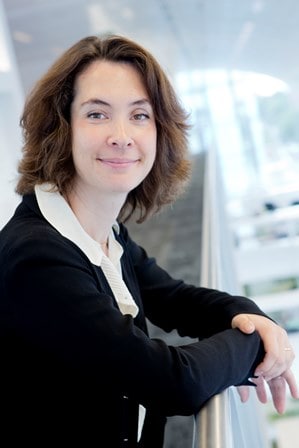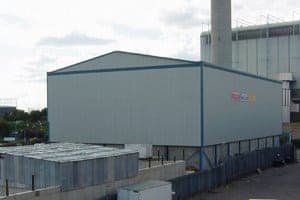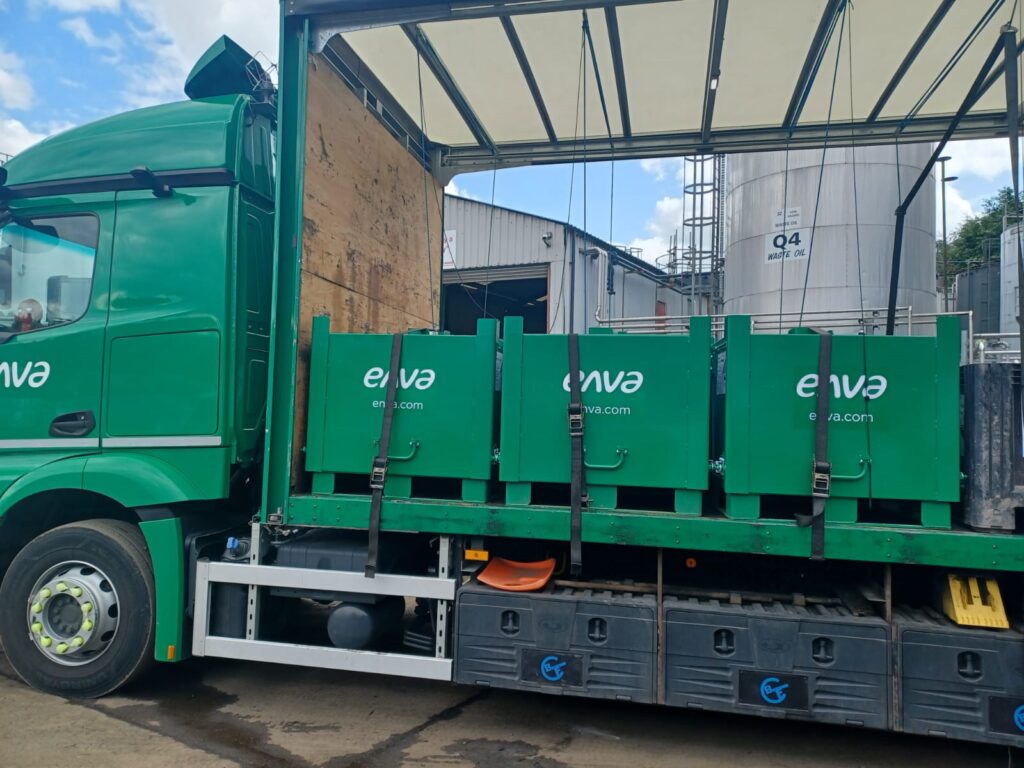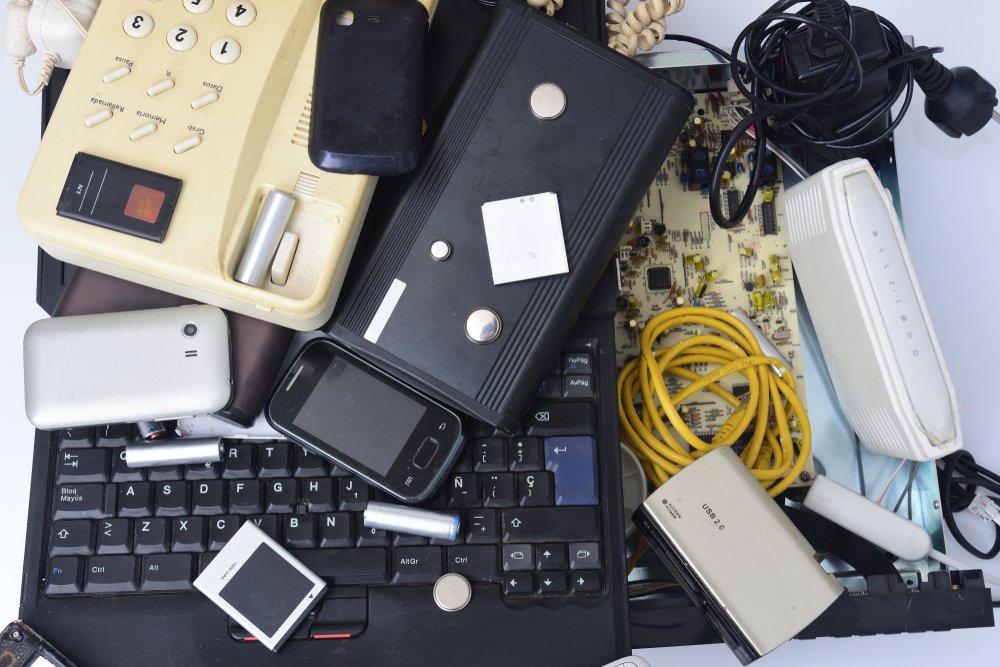The new strategy is the inspiration of Estelle Brachlianoff, who heads Veolia’s UK business and has the title ‘Veolia Environnement director of northern Europe and UK country director’, who joined the business from Paris almost a year ago.

Under the new strategy, the company will be targeting the production of green calories in terms of energy and product. When this change is achieved, Mrs Brachlianoff believes Veolia won’t be a waste company, we will be a manufacturing company in the circular economy.
“Switching from a traditional approach to waste management and instead focusing on products to specifications, represents a sea change in thinking for Veolia. Management and staff are being briefed on the new direction with focus and delivery for the new strategy now the key words. The strategy and projects have all been presented to 800 managers in regional roadshows so they can understand it and be involved in delivery,” says the UK country director.
Surprises
Explaining some of the thinking behind the change, Mrs Brachlianoff reflected on her first year of office, where she had faced a lot of surprises, “good and bad” and became aware of the need to move on from the company’s current stage of activities.
“I had in mind that for PFI projects we have already invested £1 billion in seven years and we are committed to investing £1 billion more in those that we have won.
“On PFIs, the position now for Veolia is to deliver on the projects. We are operating already a lot of new facilities. MRFs, ERFs, this is a very good story for the country it has allowed this country to decrease from 85% landfilling to where it is now.”
But, the ‘bad surprise’ she has noticed is on the planning front in terms of difficulties in getting planning permission. “You have in this country, it seems, people who dont want us to invest. Getting planning permission is getting more and more crazy. This is a risk for the country, 32,000 full time jobs have been created, and there is a danger that the difficulties will be driving internal investors away.” Within Veolia, she added, “there is competing demand for investment from countries such as Brazil and China.”
Products
Moving on to the new strategy, it will see products produced from the materials recovered under PFI contracts, from municipal streams and commercial and industrial waste.
She reasons that with the PFI process ending and the need for a circular economy approach, the new strategy was needed. “The new strategy is about what is going to be next for the country and for Veolia going forward. I have discovered and taken the decision about this, having initially agreed with the top 10 in our team in the UK and then sharing it with our 32,000 employees.”
It is clear though that it is Mrs Brachlianoff herself who is driving the strategy forward with a strong conviction that the product-led approach is the right way to go. She stated: “I have been appointed in the UK with my background and knowledge and am determined to find what the UK needs at the moment. The strategy takes advantage of what I know and the team.”
Champion
Explaining the strategy in more detail, she says that the aim for Veolia is basically to become a champion of the circular economy, manufacturing green calories, green products and green compost.
“We want to use waste materials as a mine and to find raw materials. This turns upside down the traditional view of waste that recycling is what we will have to do with it. Instead of looking at how to handle waste, Veolia will focus on what it can manufacture and what material we need to produce the feedstock for those manufacturing units which can use our products.”
Mrs Brachlianoff explained that in her view, the waste industry has been through different periods of development:
- Lets get the waste away.
- Lets avoid polluting, including, for example, the installation of landfill liners and flue gas treatment.
- The last 10 years, lets get rid of it, avoid pollution. By the way if we can, lets do something such as recycling and energy production.
Stage 4, she said, is the next stage where “production is achieved in terms of calories and products as well as the creation of jobs and the waste company becoming a real actor in the local economy.”
Producing calories, she says, is a quite different approach to waste management and will be a long journey for the company but it will be able to draw on some of its existing experiences.
Fuel
Giving examples of what this actually means, she cites firstly fuel production. “We will produce fuel with a specification and that depends on what you the customer will be doing with it. There will be a different specification from a paper mill to a cement kiln or to an ERF (energy recovery facility).”
As to whether the product will be free or a payment received, she said: “The value depends on the quality you have and can range from lets pay a lot for the fuel or you have to give it away. In some cases we will have to convince people to buy it and we need to produce to a specification which can be checked.”
Another example, she said, is district heating such as provided in Sheffield and more recently in Southwark from the SELCHP facility. The calories here are very green.
Organics
The organics sector will also be one where products are produced, in composting and for anaerobic digestion.

“We produce a very high specification of compost in terms of what nutrients there are inside. 30 kg bags of Progrow can be sold at HWRCs and we hope to sell these in DIY stores. We have already sold 32,000 bags and hope to sell 60,000 by the year end. We want to dramatically increase the volume and are pushing this through.”
Declaring that she believes there will be overcapacity in terms of anaerobic digestion facilities in the UK, Mrs Brachlianoff confirmed that Veolia will not be going down the operator route. She expressed relief that the company was not caught up in operations but instead will be a supplier of green calories to the AD plants.
“The AD owners, they need the methane content and we can provide an organic soup which they need. We are investing in a plant near Sheffield and will be producing this soup and selling it to them. I would prefer to be the one feeding them with mushroom soup rather than starving for it.”
Cardboard
On the materials front, she refers to cardboard and suggests that the company is looking at other outlets than paper mills for the material as well as the potential for joint ventures for productions. “We sell it to the paper mills and we are not going to build a paper mill. It is official that there are not enough mills in the UK so we have other solutions, such as turning cardboard into insulation material or to produce in partnership with someone else, it could be a joint venture.”
Landfill
As for residual waste, firstly the UK country director is delighted that Veolia is only number five in terms of landfill capacity rather than number one. “I have not invested in landfilling and am very pleased about that.”
The company will be looking to use residual waste for energy or processing it, she said. And, in the future the plan is to have just two landfills in 10 years time, one in the north of England and one in the south.
Change
Will the strategy be successful? – she is convinced this is a yes. “This is a major change, a major move. It is disruptive, we are changing the day-to-day process but we are building on what we are doing and what we are doing well.
“A lot of this is about a change of mindsets. We are talking about specifications needed to meet the customers demand instead of talking about waste.”
And, to meet this, there are also going to be changes within Veolia with new faces and ideas. On the faces front, she points to more diversity, “people that don’t look alike, rather than the more traditional”.
In terms of innovation, ideas will be a key and Mrs Brachlianoff is taking this to the ultimate with the holding of Veolia’s own Dragons Den in October, to give staff the opportunity to come forward with business ideas and win support. “They will pitch to us the manufacturing of a new product, they will bring into the den their ideas.”
- Mrs Brachlianoff can be followed on Twitter at @Estelle_Veolia








Subscribe for free